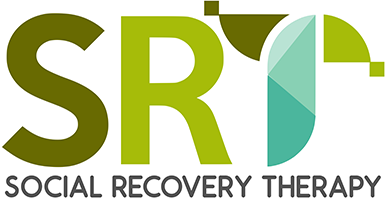The course of negative symptom in first episode psychosis and the relationship with social recovery
Brioney Gee, Jo Hodgekins, David Fowler, Max Marshall, Linda Everard, Helen Lester, Peter B. Jones, Tim Amos, Swaran P. Singh, Vimal Sharma, Nick Freemantle, and Max Birchwood
Abstract
Aims
To investigate trajectories of negative symptoms during the first 12 months of treatment for first episode psychosis (FEP), their predictors and relationship to social recovery.
Method
1006 participants were followed up for 12 months following acceptance into Early Intervention in Psychosis services. Negative symptom trajectories were modelled using latent class growth analysis (LCGA) and predictors of trajectories examined using multinomial regression. Social recovery trajectories – also modelled using LCGA – of members of each negative symptom trajectory were ascertained and the relationship between negative symptom and social recovery trajectories examined.
Results
Four negative symptom trajectories were identified: Minimal Decreasing (63.9%), Mild Stable (13.5%), High Decreasing (17.1%) and High Stable (5.4%). Male gender and family history of non-affective psychosis predicted stably high negative symptoms. Poor premorbid adolescent adjustment, family history of non-affective psychosis and baseline depression predicted initially high but decreasing negative symptoms. Members of the Mild Stable, High Stable and High Decreasing classes were more likely to experience stably low functioning than the Minimal Decreasing class.
Conclusions
Distinct negative symptom trajectories are evident in FEP. Only a small subgroup present with persistently high levels of negative symptoms. A substantial proportion of FEP patients with elevated negative symptoms at baseline will achieve remission of these symptoms within 12 months. However, elevated negative symptoms at baseline, whether or not they remit, are associated with poor social recovery, suggesting targeted interventions for service users with elevated baseline negative symptoms may help improve functional outcomes.
